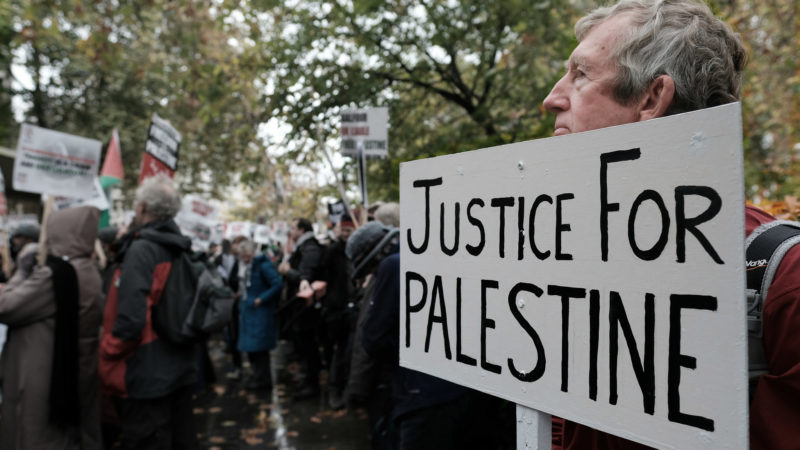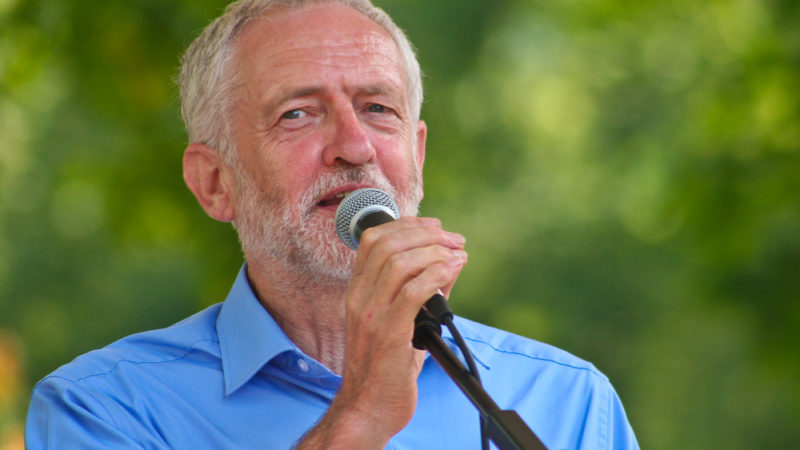The 2024 General Election: things just got a lot more interesting
By Mike Phipps
What to make of this general election? On the one hand, a massive Labour landslide. On the other, a very complex set of results, reflecting a fragmented electorate and the distorting effects of our first-past-the-post electoral system.
The Tory humiliation was overwhelming. Nationally they were reduced to just over 120 seats. In Wales they were wiped off the map. But their collapse was due largely to their incompetence and dishonesty. These factors made the Opposition’s job much easier. The result was emphatically not an endorsement of Starmerism.
A landslide with 35% of the vote
The scale of Labour’s landslide and the Tory losses is unprecedented. But also unprecedented is a government elected with just 35% of the popular vote (at least since 1832). That’s a lower vote share than Labour got under Jeremy Corbyn in 2017 when it lost to Theresa May’s Conservatives. Here’s an instructive statistic:
Brown 2010: 8.3m.
Miliband 2015: 9.6m.
Corbyn 2017: 12.8m.
Corbyn 2019: 10.02m
Starmer 2024: 9.6m.
As one observer underlined: “Since the Iraq War, only one Labour leader has managed to get more than 10m votes at a General Election. Jeremy Corbyn. Twice.”
Pollster John Curtice went so far as to say: “Actually, but for the rise of the Labour Party in Scotland… we would be reporting that basically Labour’s vote has not changed from what it was in 2019.”
Asad Rehman, Executive Director of War on Want, suggests the election raises some big questions for Labour. “If 2017 and 2019 were the worst Labour result because of a mildly social democratic agenda, then in the midst of a hugely unpopular Tory government, a cost of living crisis, Partygate, corruption and Reform eating up Tory votes, etc., 2024 has delivered fewer votes.”
Low voter turnout was another key takeaway. At under 60%, turnout was the second lowest in a century, unprecedented in an election which saw a change of government. Remember post-war election turnout in the 20th century never fell below 70%.
This is partly a verdict on the entire political class as untrustworthy and even indistinguishable. Focus group after focus group told pollsters they had no faith in politicians nor in any party to sort out the problems the country faces.
Independent voices
But even here, voters tried to find opportunities to say something different. As one tweet pointed out: “You know who won more seats than Reform? The Muslim-community backed independents: Jeremy Corbyn, Islington North; Shockat Patel, Leicester South; Ayoub Khan, Birmingham Perry Barr; Adnan Hussain, Blackburn; Iqbal Hussain Mohamed, Dewsbury and Batley.”
The election of four new Independent MPs, who took a clear line on the Israeli genocide against Gaza and four Greens, who did particularly well where river pollution was a major concern, alongside Jeremy Corbyn in Islington North (now Father of the House, alongside Diane Abbott Mother of the House), is an expression of voters’ discernment. Note too the creditable results for left wing Independents, even where they were given no realistic chance – such as Andrew Feinstein who was runner-up in Holborn and St Pancras to Keir Starmer, who was reduced to a minority of the overall vote, or Leanne Mohamad who came within 500 votes of unseating Wes Streeting in Ilford North.
As in the local elections in May, Birmingham saw one of the biggest revolts, “primarily driven by the response to Labour’s official stance on Israel-Palestine,” as Salma Yaqoob points out. Independent Ayoub Khan won in Perry Barr, defeating Labour’s Khalid Mahmood. Jess Phillips (11,275 votes) almost lost to disability activist Jody McIntyre (10,582 votes), holding on by only 693 votes. James Giles (9,089 votes) came close to defeating Liam Byrne (10,655). Labour’s Tahir Ali (12,798) would have been defeated in Hall Green if pro-Gaza independents had not split their vote, which, combined, came to 13,301. Shabana Mahmood’s majority in 2019 was reduced from 28,582 to 3,421.
“Labour will need to listen these voters,” she concludes. Asad Rehman agrees: “The idea that Labour can safely ignore its progressive voters and tack to the right to win votes is no longer tenable.”
Who enabled Reform?
For that’s exactly what Labour tried to do. Part of the reason that Reform did so well is that on their key talking points, Labour made concession after concession to them. Jonathan Ashworth, who lost his seat to an Independent, two weeks ago spouted the nonsense that asylum seekers come to the UK and stay in hotels for “the rest of their lives”.
Rather than flooding canvassers into Islington North to defeat Jeremy Corbyn, the Party machine might have used its energies more effectively to mount a campaign against Nigel Farage in Clacton – especially after the Channel 4 exposé of racism and homophobia in Reform. Instead the young Black candidate was instructed to go campaign elsewhere.
The Labour apparatus’s pursuit of factional feuds with the left also cost the Party seats as we predicted. The deselection of Faiza Shaheen in Chingford was a prime example. “It is self-evident that if Faiza Shaheen had not been undemocratically and bureaucratically taken out by Labour’s leadership she would have won easily,” noted former top Party advisor Simon Fletcher. “This kind of machine politics has to stop.”
Momentum activist Martin Abrams agreed. “Faiza Shaheen as a Labour Party candidate would have absolutely trounced Iain Duncan Smith but Keir Starmer’s shameful factionalism allowed one of the worst Tories to keep his seat.”
Professor of Cultural and Political Theory Jeremy Gilbert added: “ Three guys on an NEC subcommittee decided they’d rather let IDS keep the seat than allow Faiza Shaheen to become the most talented new MP in the house. Utterly sectarian, small-minded, cowardly and Islamophobic behaviour that should have no place inside or outside the Labour Party.”
Leicester, another focus of leadership factionalism against Party members, also saw Labour losses – and not just Jonathan Ashworth. Leicester East, held by Labour for 37 years, elected a Tory MP on a night the party were trounced elsewhere.
Reform remain a worry. They even picked up 7% of the vote in Scotland with little obvious campaigning. Even if they did less well nationwide than the BBC exit poll predicted, “yesterday signified their arrival as a serious (and dangerous) political force,” noted Hope Not Hate activist Nick Lowles. “In addition to the four seats they won, Reform came second in another 98 seats.” Nor are the Tories entirely wiped out.
Luke Tryl, UK Director of More in Common, tweeted; “If voter disillusionment is not now addressed, this may be our France 2017 election. Here’s one parallel: National Rally 2017: 3 million votes (1st round), 8 seats. Reform UK 2024: 4 million votes, 4/5 seats. National Rally 2024: 10.6 million votes. Likely 200+ seats.”
Looking ahead
So it was an election full of contradictions. But while psephologists pick over the figures, the agenda now moves ahead to a Labour government with a huge majority.
As former top advisor under Ed Miliband, Jeremy Corbyn and Keir Starmer, Simon Fletcher points out: “Labour’s economic framework will generate a host of tensions and conflicts with its own base. The Reeves-Starmer recipe for the economy has moved Labour considerably to the right, particularly in the context of the scale of the problems facing the economy and British society. It lacks any major form of redistribution, or major measures to overcome inequality; it does not propose progressive changes to the tax system to increase the share of the burden on the richest to benefit working class people; it has a highly limited approach to public spending, and indeed polemicises against ‘tax and spend’, which it counterposes to growth. It has severely cut back its own green investment programme. With the main exception of public transport it makes no proposal to change the balance of ownership within the economy; and at a time of unprecedented squeeze on household incomes and with stagnant wages it has no target to grow the share of the economy going into wages or any immediate substantial measures to directly ease pressures on the cost of living.
“Rarely has the disparity between the real situation and the programme of the leadership of the Labour party been more apparent.”
So what do we conclude from this landslide victory? The low turnout is a warning that voters are mistrustful of the political elite in unprecedented numbers. Such negativity, if not combated, will help the far right, with their pretensions to be against the whole political class, despite their impeccable Establishment credentials and funding.
So Labour in government must work to win people’s trust. Those who did vote voted for change. They didn’t read the Labour manifesto and many were unimpressed by the cautiousness of Labour’s messaging particularly as it goes nowhere near solving the problems they face – the health, cost of living and climate crises.
Labour should take advantage of this massive majority to be bolder. More radical policies than those in the manifesto will inevitably be needed to get through the huge to-do list now confronting Labour. The scale of the vote underlines the public’s impatience. Labour must move quickly and act radically to respond to that mood.
As Stewart Wood observed: “Labour’s electoral fortunes in five years weren’t baked in yesterday. They’re fundamentally about what Labour does in power.”
Expectations are high. “Labour’s landslide will transform British politics” headlines one article in the New Statesman. “Labour has won the election – it hasn’t won the argument,” says another. Its author adds: “Labour has won a stunning landslide. Starmer did it by making almost no political arguments at all. To keep winning, and to maintain order, that will need to change.”
Meanwhile the left in Parliament is in a strong position to link up across progressive parties and Independents and connect to the growing movement outside. To do that, it will need to be open-minded and inclusive, taking account of the new realities and balance of forces.
Inside and outside the Party, these new activists showed themselves to be a force that will not be ignored. They speaks for those left behind who desperately need radical change to improve their lives. But if Labour fails to deliver and makes no difference to them, the Party could be swept aside and the left might also be casualties in this new era of voter volatility. As Labour National Executive Committee member Mish Rahman tweeted: “There is no such thing as a safe seat anymore… Labour have to earn every vote in every election, no more throwing communities under a bus.”
So there’s a breathing space for the left. The years of introspection and recrimination are over. It’s time to step up the pressure!
- Mike Phipps’ book ‘Don’t Stop Thinking About Tomorrow: The Labour Party after Jeremy Corbyn’ (OR Books, 2022) can be ordered here.
- This article was originally published by Labour Hub on July 5th, 2024.














 Brian Inganga - Associated Press
Brian Inganga - Associated Press


